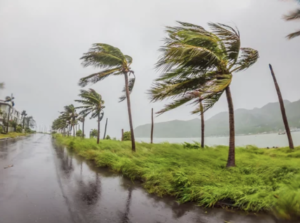
If you live in Florida, you know the climate here can be tough on your roof. From extreme humidity to strong storms, there are many things that can lead to roofing issues. In this blog post, we’ll take a look at the top four roofing issues that are common in Florida and how you can prevent them.
By learning about these common roofing issues and taking the necessary steps to prevent them, you can save yourself time and money in the long run. So read on to learn more about Florida’s top roofing issues and how to avoid them!
- High Winds
When it comes to roofing issues in Florida, high winds are one of the most common problems. This is especially true during hurricane season when heavy rains and strong gusts of wind can cause significant damage to your roof. While this type of storm damage cannot always be prevented, there are several steps that you can take to minimize the risk of wind damage to your roof.
The most important preventative measure that homeowners can take is to make sure their roof is properly installed. Ensure that all nails and screws are properly secured and that the felt underlayment is correctly placed. Additionally, look for signs of wear and tear on your roof from strong winds, such as cracked tiles, dents in your roof, or any other visible signs of damage. If you do notice any of these issues, contact a professional roofer as soon as possible to repair or replace the damaged area.
Additionally, many Florida homeowners opt to install an upgraded roofing system that is designed to withstand high winds. Products such as impact-resistant tiles and metal roofing provide extra protection against the elements. These materials are designed to withstand stronger winds and protect your home against storm damage. Finally, regular maintenance of your roof should also be a priority. Make sure to have your roof inspected annually by a qualified contractor and have any necessary repairs done right away.
- Heavy Rains
Florida’s extreme weather conditions can lead to a variety of roofing issues. Heavy rains are one of the most common issues homeowners face in this region. Without proper maintenance, water can damage your roof, leading to leaks and expensive repairs. To avoid these costly repairs, it is important to be proactive about inspecting and maintaining your roof.
One of the best ways to prevent damage caused by heavy rains is to make sure that your roof is properly sealed. Start by looking for signs of loose tiles or cracked caulking around vents, flashing, and chimneys. Make sure that all seams, valleys, and eaves are properly sealed with the right type of sealant. Additionally, inspect your gutters and downspouts to ensure they are properly draining away from your home.
- Heat and Humidity
When it comes to Florida’s climate, heat and humidity are two major factors that can cause problems with your roof. The intense heat and moisture can cause tiles to become brittle and break, leading to gaps and allowing water to seep in. In addition, strong winds and thunderstorms can cause shingles to become loose, or even detach completely.
To prevent these common issues, it’s important to regularly inspect and maintain your roof. Make sure all tiles or metal roofing are properly aligned and securely attached, with no signs of wear and tear. Regularly check for any signs of damage such as curling, blistering, and cracking of the shingles, and replace them as necessary. You may also want to consider investing in high-quality underlayment that will provide extra protection from water damage.
- Mold and Mildew
Mold and mildew are two of the most common roofing issues in Florida. While these issues can range from minor to serious, all homeowners should be aware of them and take steps to prevent them.
Mold and mildew are fungi that thrive in warm, humid climates such as Florida’s. It can grow in any damp areas on your roof, including near air conditioning units or leaking gutters. If left untreated, mold and mildew can cause discoloration and rot.
The best way to prevent mold and mildew on your roof is by keeping it clean. Inspect your roof for debris, leaves, and other organic matter that can create a breeding ground for mold and mildew. Additionally, you should make sure your roof is free of standing water after storms.
If you notice mold and mildew on your roof, you should act quickly to prevent it from spreading. You can use a bleach solution to remove the affected areas, but it is best to contact a professional roofing contractor to ensure it is properly treated.
Overall, the best way to ensure that your roof can withstand Flordia’s extreme weather, you need to get your roof regularly inspected by a professional roofer, such as ProCraft Exteriors. We will help you navigate through all of your roof’s problems in our complimentary and honest inspection of your roof. Give us a call at (239) 970-8116 if you are in the Southwest Florida area. We are always happy to help!
